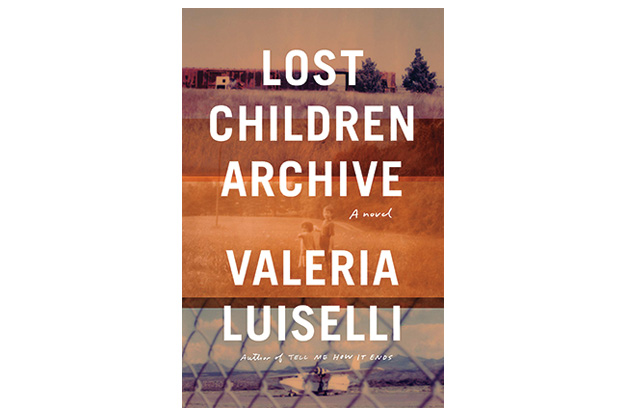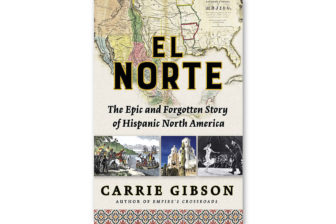This article is adapted from AQ’s print issue on piracy in Latin America
Valeria Luiselli’s latest novel, Lost Children Archive, is cut from the politics of the moment. At its most intimate, the book tells the story of a family’s impending breakup on a road trip through the U.S. southwest. But the book, the Mexican author’s first novel written in English, is also about fragmentation in a broader, civic sense — using deportation and family separation policies under former President Barack Obama and President Donald Trump as a touchstone.
The unnamed family at the center of the novel is driving across the country in search of stories: The father, an audio archivist researching the last of the Apaches, hopes to document the echoes of the places where Cochise and Geronimo once walked. Meanwhile, the mother, a radio journalist who narrates the first part of the book, is drawn by the story of two girls who have gone missing from an immigrant detention center.
The two children in the back seat, a five-year-old girl and a 10-year-old boy, are simply along for the ride — until they start to realize that their parents may be in the process of separating. As they do, the children’s voices become more urgent — each is the biological child of only one of the parents, so a separation would mean a total split of the family.
The boy takes over the narration of the second half of the book, making an archive for his sister, who he worries will forget what it was like to be in a family with him. It is here that the novel reaches its emotional core. All the stories the children have heard on their journey — the Eagle Warriors, a band of Apache children who could control the weather, David Bowie and astronauts and maps and Echo Canyon — come to rest perfectly in an abandoned train car in the middle of the desert.
Lost Children Archive is in many ways a continuation of the themes Luiselli explored in her recent book-length essay, Tell Me How It Ends: An Essay in Forty Questions. Both deal with the U.S. immigration crisis. But while the latter circles almost entirely around children coming from Central America to apply for asylum, Lost Children Archive expands that narrative to touch the historical atrocity of Native American genocide, as well as other texts on voyage and journey by writers like Ezra Pound, T.S. Eliot and Juan Rulfo.
Luiselli peppers her fictional narrative with real-life activists and organizations helping immigrants. If you were to look up Father Juan Pablo, you’d find his New Sanctuary Coalition, an organization of houses of worship in New York, which runs an asylum clinic. Searching for Steven Haff’s school, Still Waters in a Storm, would lead you to an op-ed Luiselli wrote about his students, busy retranslating Don Quixote from English into Spanish as an immigration narrative. These are activists and teachers who have been working since the first child migrant crisis, and are now dealing with Trump’s family separation policies. These figures are a throughline that brings Luiselli’s book into the present, imploring the reader to take stock of their own activity and activism.
The sum of Luiselli’s careful mosaic work is a novel that asks questions about personal and political history and how memories are preserved — while at the same time exploring what it means to bear witness in a divided society.
—
Oliva is a writer based in Boston








